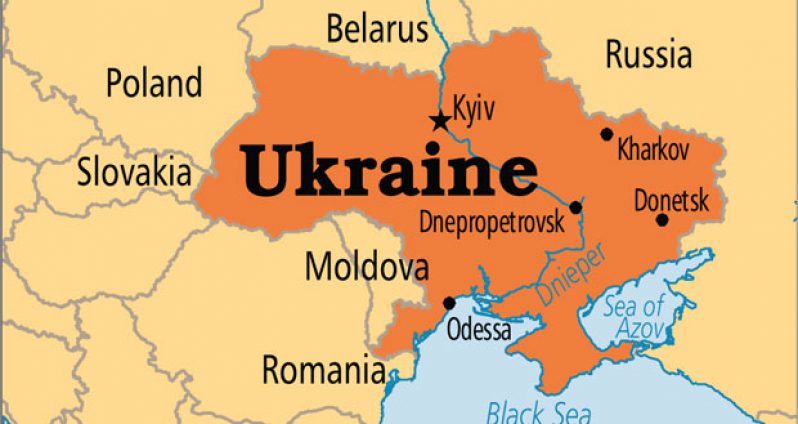POLITICS, THEY say, could be ‘one a hell of a thing,’ with a myriad of somersaults, contradictions and more.
Well, last month, which marked the 11th anniversary of America’s military invasion of Iraq—without even a prior notification to the United Nations—was chosen by the administration of President Barack Obama as the time to engineer a winning vote in the UN General Assembly to condemn Moscow’s involvement in Crimea’s secession from Ukraine in favour of returning to the geographic and political fold of Russia.And not since the US military invasion of Grenada back in October 1983 was CARICOM partners to reveal such a crucial foreign policy division as they did last Thursday with Trinidad and Tobago for one being among the quartet of regional states to give political joy to ‘Uncle Sam’ with a “yes” vote.
While a General Assembly vote is non-binding—in contrast to the UN Security Council’s where Russia, like the USA and three other countries (China, Britain and France) each have veto powers—the 14 member states of our Caribbean Community were to break ranks on the vital issue of foreign policy co-ordination when the UNGA’s vote was taken.
Some 100 of the UN’s 193 member states voted ‘yes’ in favour of the resolution, while 58 opted to abstain; 11 voted ‘no’ and there were those who failed to show up.
In this hemisphere, the CARICOM quartet of ‘yes’ votes apart from T&T’s, came from Barbados, Bahamas and Haiti. The ‘nos’ included Cuba, Nicaragua and, not surprisingly Venezuela—with which Washington has to date spurned repeated official calls for dialogue to normalise relations–even after the governing party won both democratically held presidential and local government elections.
Among the 58 abstentions were Antigua and Barbuda, Jamaica, Guyana, Suriname, Dominica, St. Kitts and Nevis; St. Lucia and St.Vincent, while at the wider international level, there were Brazil, South Africa, India and Pakistan as well as Iraq and Afghanistan.
If the latter two have had more troubles with America’s devastating “war politics” than they bargained for, the most surprising ‘absentee’ country for the crucial period of voting was undoubtedly Israel. For CARICOM, the ‘no shows’ were Grenada–invaded by the USA on October 25, 1983—and Belize, which remains locked in territorial conflict with neighbouring Guatemala.
I cannot recall any CARICOM leader, or Foreign Minister taking time to explain anything of relevance to the people of his/her national jurisdiction in relation to the implications for territorial integrity and national sovereignty. Not either before or after the dominant pro-Russia people of Crimea had freely cast their overwhelming referendum vote—some 97 per cent–to secede from Ukraine and return to the embrace of the country that existed before the dissolution of the Soviet Union back in 1991.
St. Vincent’s reminder
In this context the government of St. Vincent and the Grenadines, whose Prime Minister, Dr Ralph Gonsalves, is current chairman of CARICOM, did well in the release of a statement which noted that “one of the essential contributions to be made by small states like ours is the tireless advocacy for timeless principles enshrined in international law….We consider it our solemn obligation not only to articulate these principles but to ensure that they are applied consistently and upheld in the international community as universal truths…”
I am aware of strenuous private initiatives made among governments to ensure a CARICOM consensus for the UN vote, consistent with a shared commitment to foreign policy coordination. Regrettably, consensus proved elusive. Also known was the intensive lobbying efforts by diplomatic envoys of the USA to garner support in favour of the resolution. They succeeded with the named quartet of Community partners.
No need to dwell now on why and how America and Britain had played key roles years earlier to achieve Kosovo’s secession from Serbia. But surely the people of CARICOM, irrespective of nationality, geographical location, cultural and economic variations, deserve to be treated with respect by their respective governments with at least a statement providing the rationale for voting at the UN on vital issues pertaining to political sovereignty and territorial integrity.
After all, political bitterness still lingers on CARICOM’s division over America’s military invasion of Grenada when ‘Cold War’ anti-communist propaganda was used to justify that unprecedented development in our region amid Washington’s self-serving propaganda against Cuba and Nicaragua as being part of a conspiracy by the then Soviet Union to spread communism in the Western Hemisphere.
Now the USA and its major European partners are busy pointing to “threats” posed by Russia to Ukraine because of Moscow’s success for Crimea’s peaceful return to a historical fold before the disappearance of the Soviet Union. The bottom line, as viewed by some informed international observers, is the careful orchestration by the USA and its major allies to preserve dominance in prevailing spheres of influence.
It should, however, be evident that small states like those comprising CARICOM owe it to themselves to be ever vigilant against being disadvantaged in their quest to secure and preserve the political and economic space they need for survival with dignity and freedom.
They should not be expected to surrender their own fundamental rights in order to win favours from the big, rich and powerful. That’s not what ‘friends’ are for.
Analysis by Rickey Singh
CARICOM’S DIVIDE OVER UN VOTE ON UKRAINE….
SHARE THIS ARTICLE :
Facebook
Twitter
WhatsApp



.jpg)








